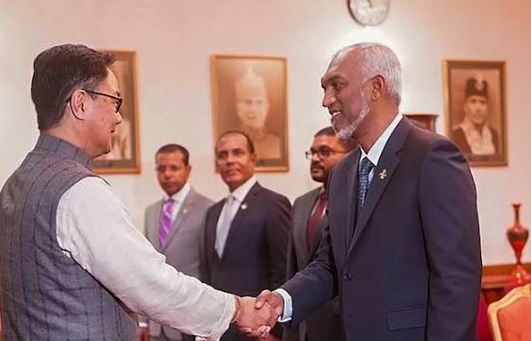Maldives Calls for Withdrawal of Indian Troops: A Shift in Regional Dynamics

The Maldives has recently called for the withdrawal of Indian military personnel by March 15, marking a significant shift in its foreign policy. This move is seen as a part of the Maldives’ strategic realignment in a region where India and China vie for influence.
The Announcement: A Change in ‘India First’ Policy
President Mohamed Muizzu, who won last year’s election with a pledge to end the Maldives’ ‘India First’ policy, has called for the withdrawal of Indian troops. This represents a departure from the previous government’s approach, which was closely aligned with India.
Background: India-Maldives Relations
India has traditionally been a key ally and partner of the Maldives in various sectors, including defense and security. Indian military presence in the Maldives has been part of bilateral agreements aimed at enhancing security in the Indian Ocean region.
Implications for Regional Geopolitics
This policy shift by the Maldives could have significant implications for regional geopolitics, particularly in the context of the strategic competition between India and China. The Indian Ocean region is a focal point for maritime trade and security, and changes in alliances here can have far-reaching consequences.
China’s Growing Influence
China has been increasing its presence in the Indian Ocean, including in the Maldives, through investments and infrastructure projects. The Maldives’ move to distance itself from its ‘India First’ policy could be seen as an indication of growing Chinese influence in the region.
Concerns in India
India is likely to view this development with concern, as it could impact its strategic interests in the Indian Ocean. The withdrawal of Indian troops could lead to a reassessment of India’s foreign policy and security strategy in the region.
Navigating a Complex Landscape
The Maldives’ call for the withdrawal of Indian troops highlights the complex and evolving nature of regional politics in the Indian Ocean. It underscores the strategic importance of small island nations in the power dynamics between larger states.





